Overview
Why Babel?
The process of software development is becoming increasingly complex. Developers are being inundated with tools and concepts such as Git, Container, Microservice, CI/CD, and more. This influx of "technologies" is overwhelming developers, leaving them with less time for creative tasks. To build a cloud-native application today, a developer must purchase cloud resources from vendors like AWS, set up an IDE and development environment, establish a CI/CD pipeline, select frameworks like Spring and integrate them with K8S, and also set up operational facilities like Datadog. However, these tasks do not directly contribute to the value of the application being created.
Goal
Babel aims to unlock developers' creativity by simplifying the process of building applications. This goal is achieved in two ways:
- Focus on Programming: A common misconception is that programming is difficult. However, the real challenge often lies in navigating the various technologies and tools. Programming languages, such as Javascript, are mediums for expressing business logic and are often close to natural languages, making them easy to learn. Babel allows developers to build applications with the only prerequisite being a basic understanding of Javascript.
- AI Integration: AI is a default feature in the Babel platform. It assists in creating application structures, writing/editing code, identifying bugs, and even debugging compiler/runtime errors. It functions not just as a copilot, but as a collaborative colleague. We believe that achieving this goal will empower more people to create with code, whether for business applications or personal projects.
What is Babel?
Babel is an AI-powered cloud IDE that allows developers to concentrate on business coding, eliminating the need for dealing with complexities like environment setup, frameworks, and resource management. Babel offers a range of functionalities designed to expedite the development of enterprise-level applications, from coding to launching.
Unique Features
Babel offers traditional features such as syntax highlighting/hints, versioning, and one-click deployment, but it also introduces revolutionary features that significantly differ from current practices:
-
AI-assisted Development Lifecycle: Unlike tools that merely add AI features, Babel is designed for both humans and AI. BabelGPT, the AI function of Babel, is seamlessly integrated into the platform. It can operate the workspace just like a human developer, assisting with coding, debugging, and monitoring apps, functioning like a collaborative colleague.
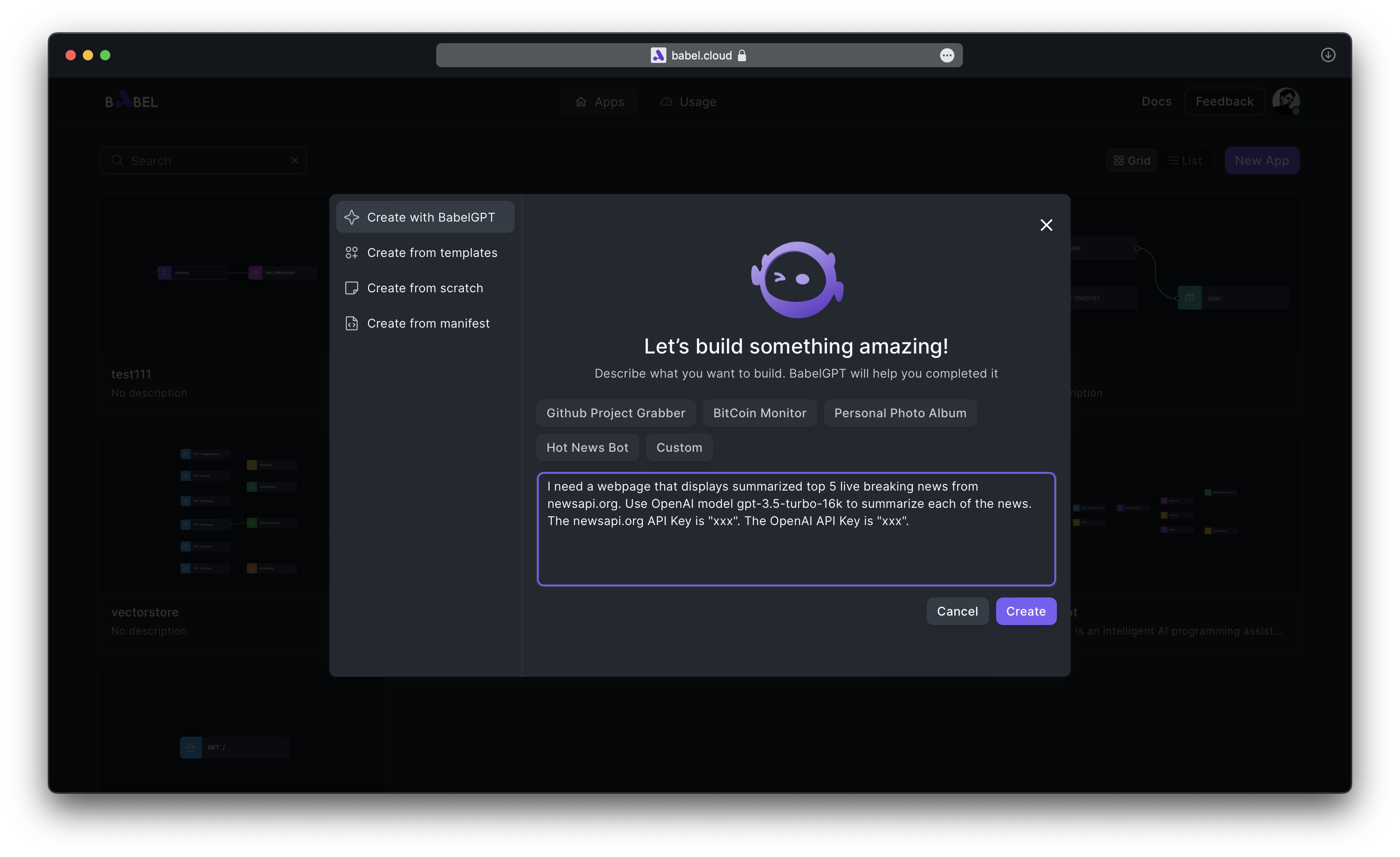
-
Business Oriented Architecture: One of the main challenges in building applications is decomposing business requirements into software components. Traditional software architecture is resource-oriented, requiring developers to manage files, folders, and functions/classes, which can be counterintuitive. Babel's architecture is element-based, where each element is a software component itself, providing a more intuitive, "what you see is what you get" approach.
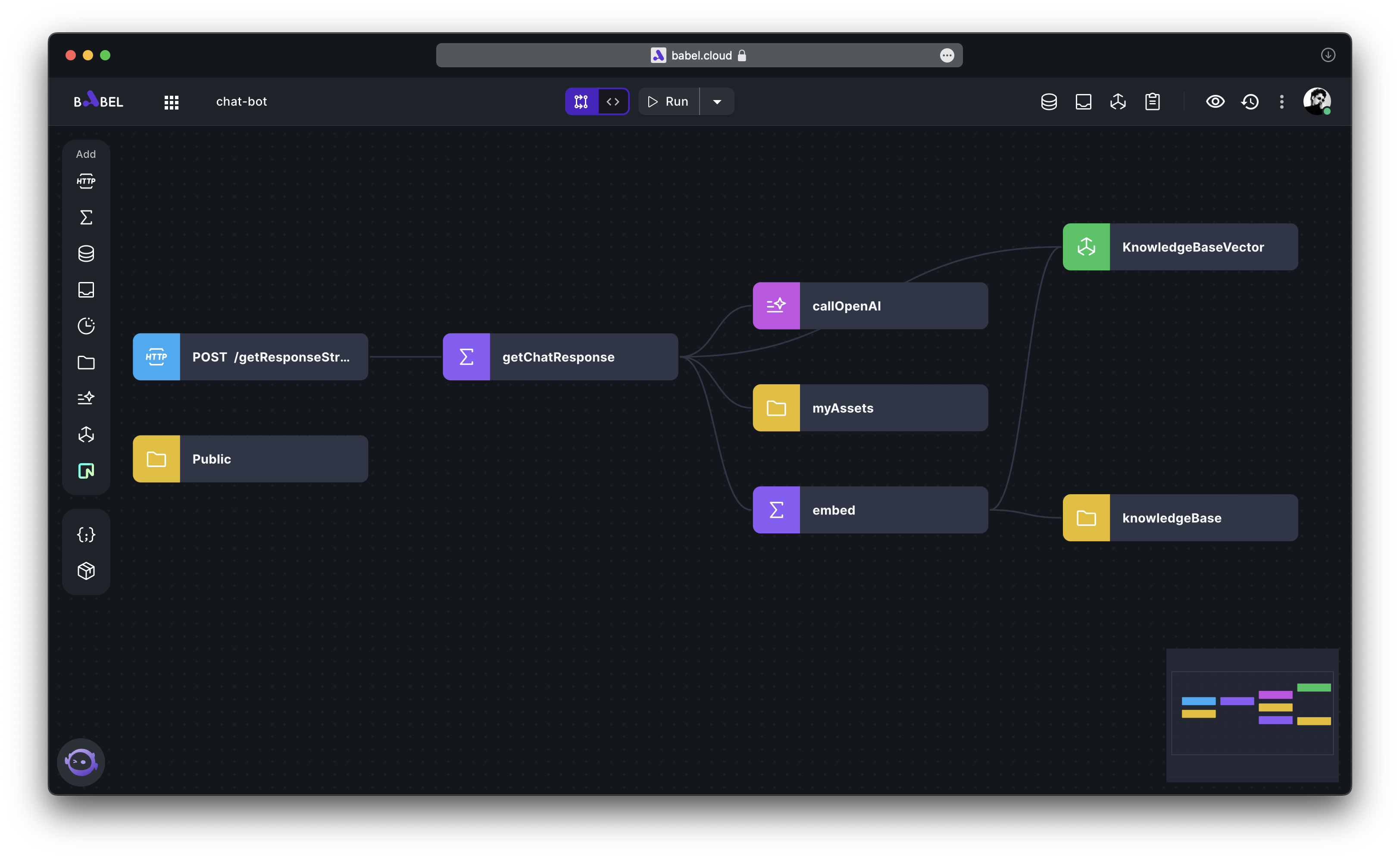
-
Holographic Observation: When an application is not behaving as expected, developers traditionally need to navigate through logs and code, adding breakpoints, which can be time-consuming. Babel introduces "Holographic Observation", a novel solution that allows developers to see execution details directly in the code, functioning like an x-ray for your application. This feature significantly simplifies the process of identifying and resolving issues.
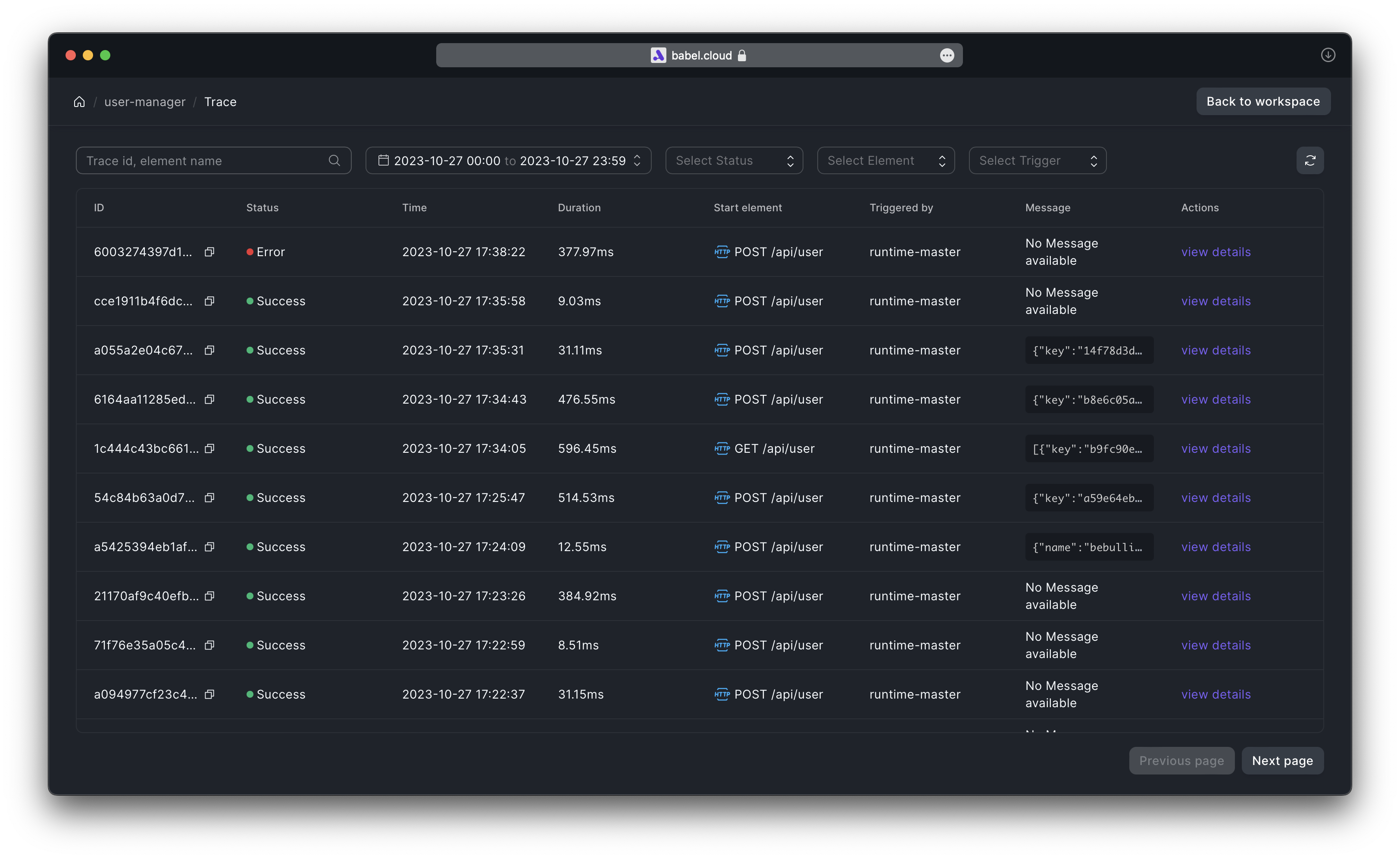
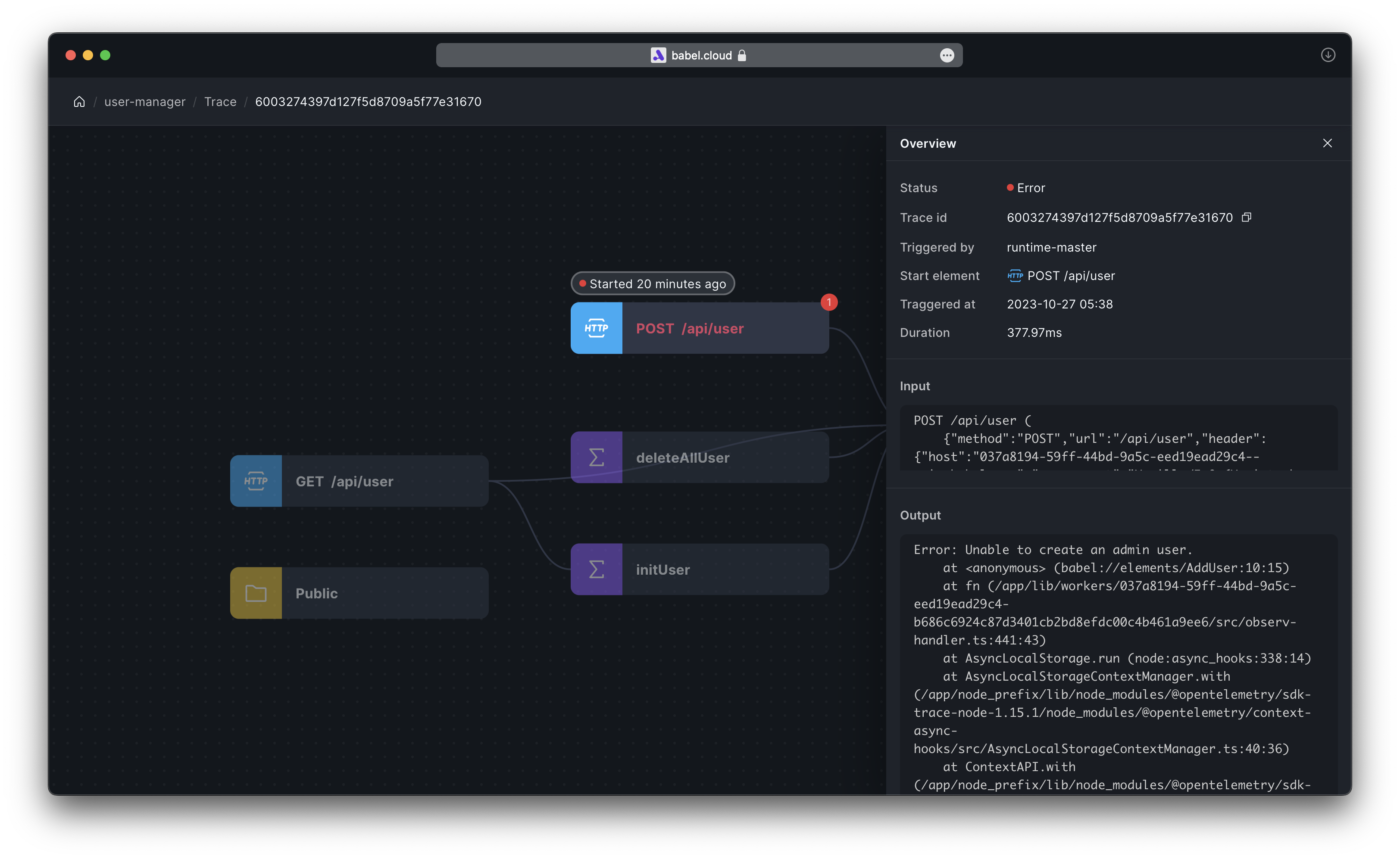
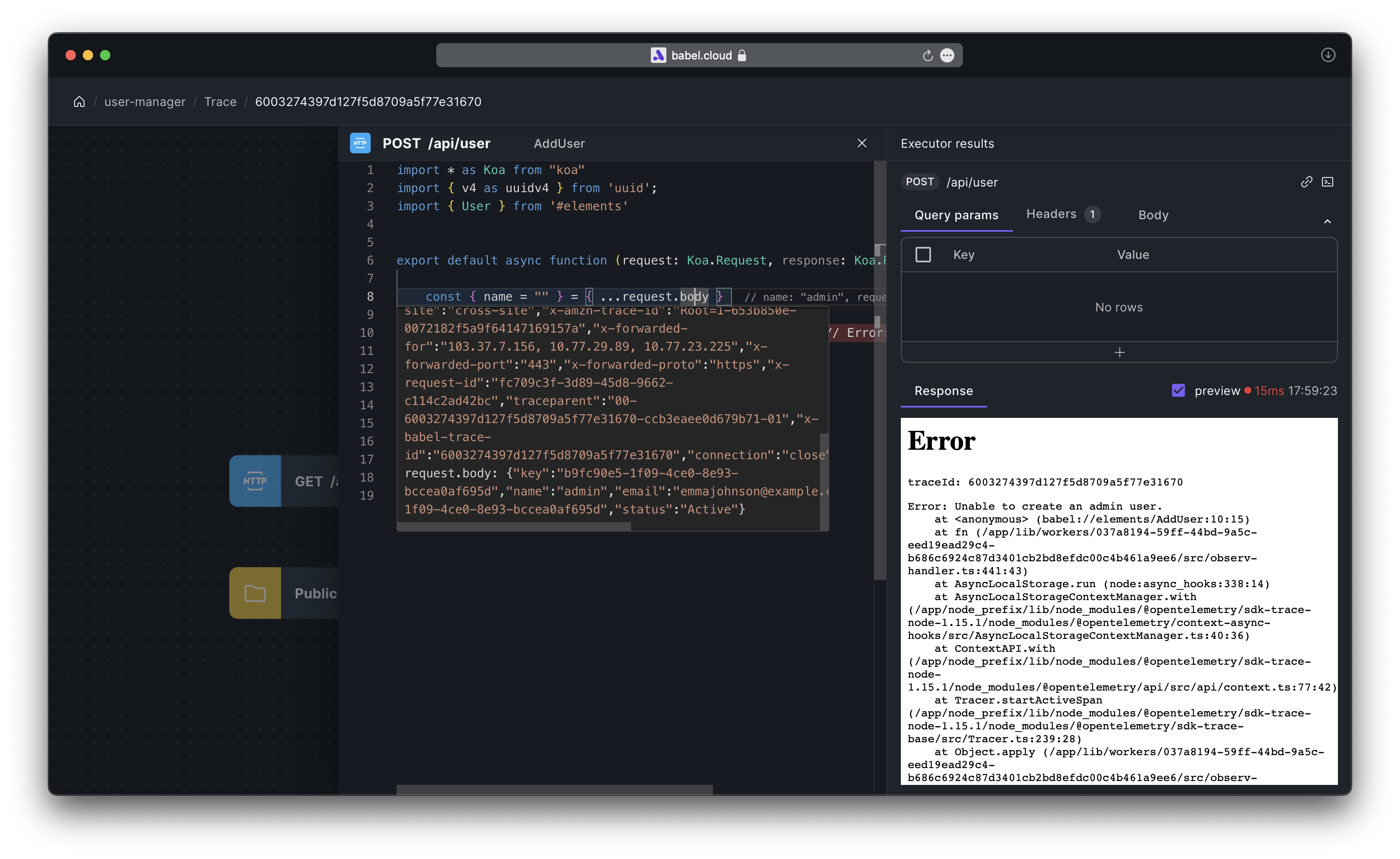
-
Built-in AI Elements Language Models (LLMs) play a significant role in modern applications. Simplifying the process of prompt evaluation, embedding searching, and LLM invocation is crucial. Babel has built-in support for all these AI capabilities, eliminating the need to switch between different tools. Furthermore, AI elements in Babel can inter-operate coherently with other elements, ensuring a seamless development experience.
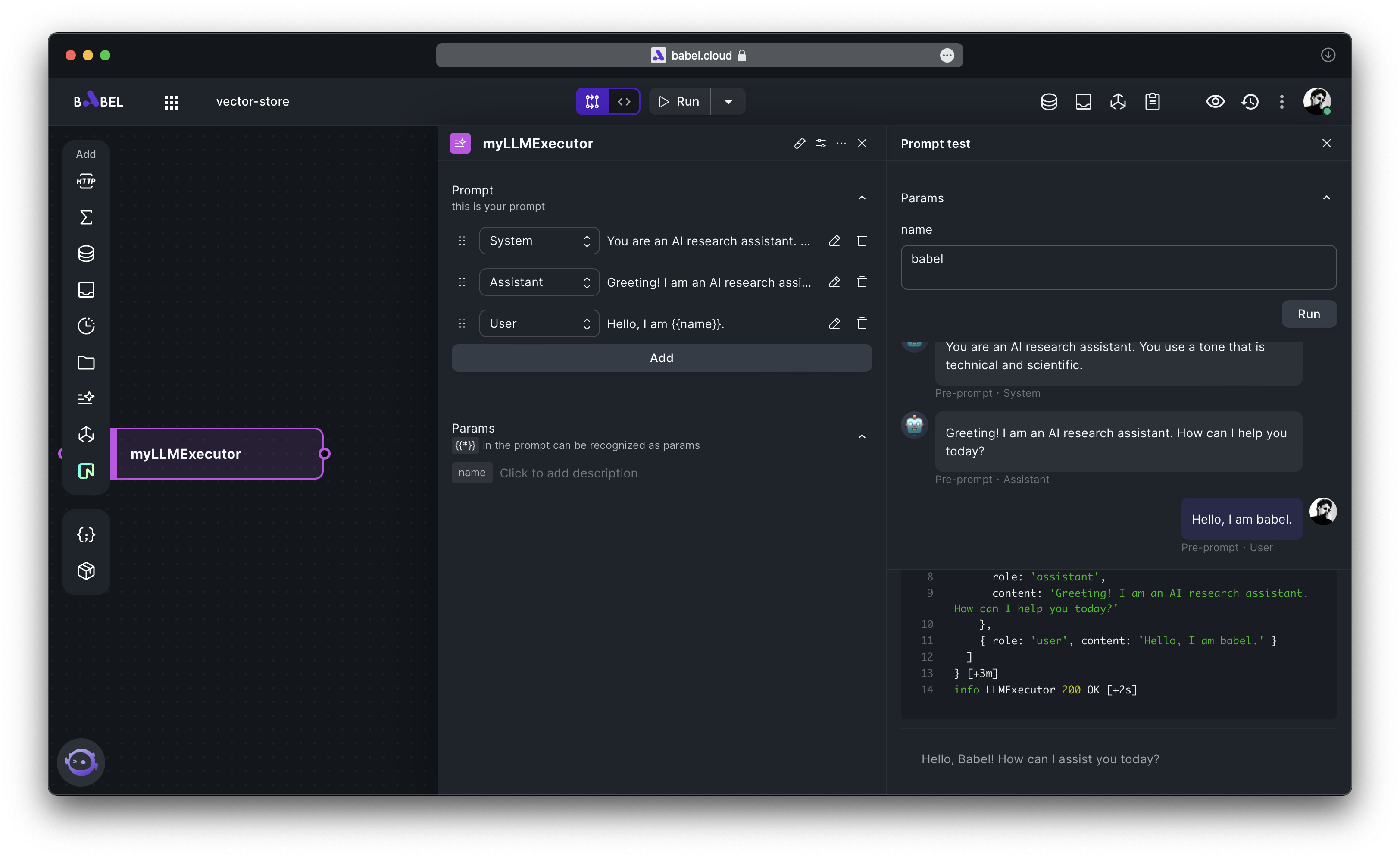
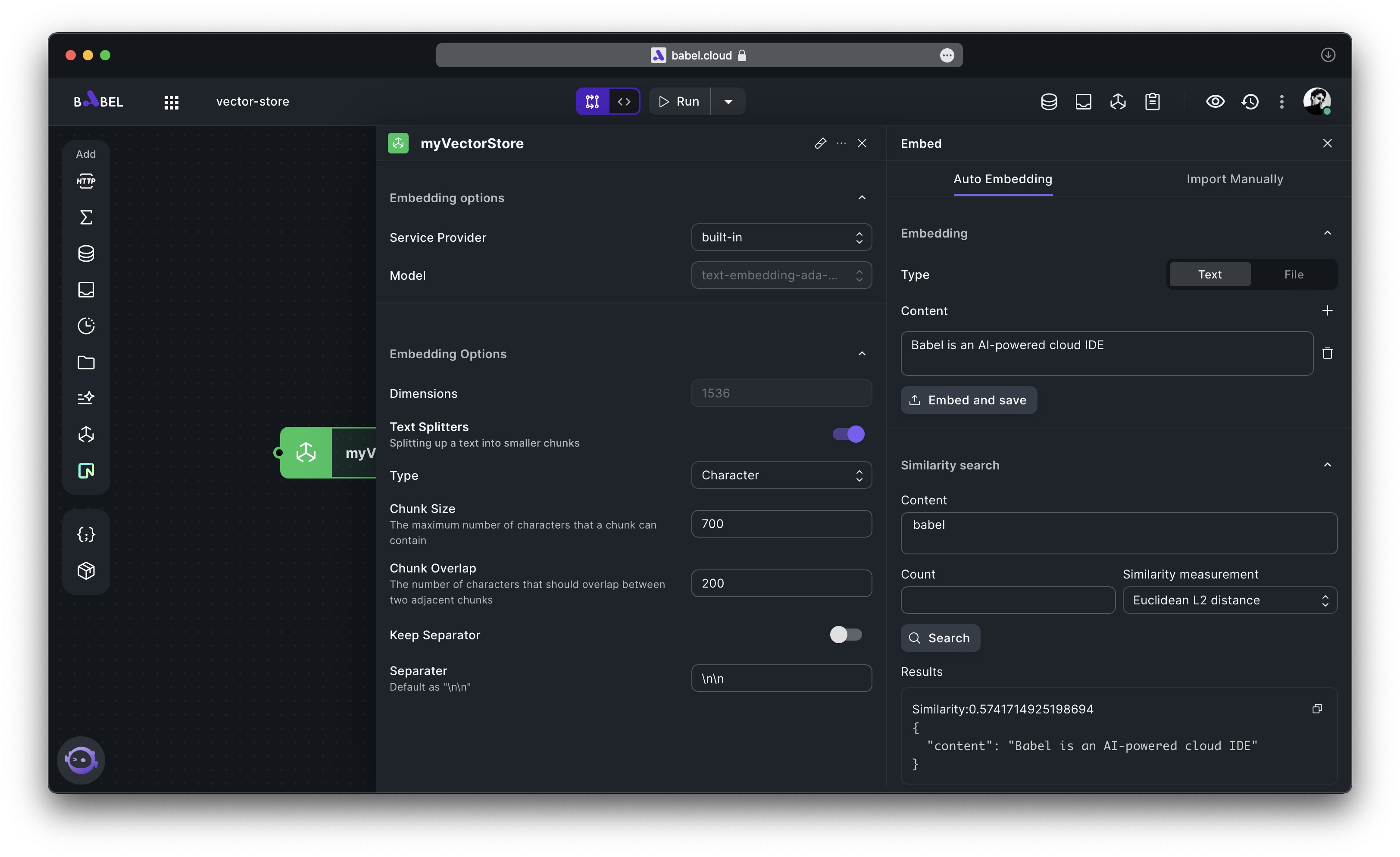
Limitations
To deliver a revolutionary development experience, Babel has certain limitations:
- Programming Language: At present, Babel only supports TypeScript/Node.js.
- Performance: Babel offers typical Node.js project performance. However, due to the abstraction of resource-level complexity, tweaking the runtime for higher performance is not supported.
- Compatibility: Babel introduces a new software architecture, which means importing existing TypeScript/Node.js projects into Babel is not currently supported. These limitations are necessary to maintain the unique features and benefits that Babel offers.